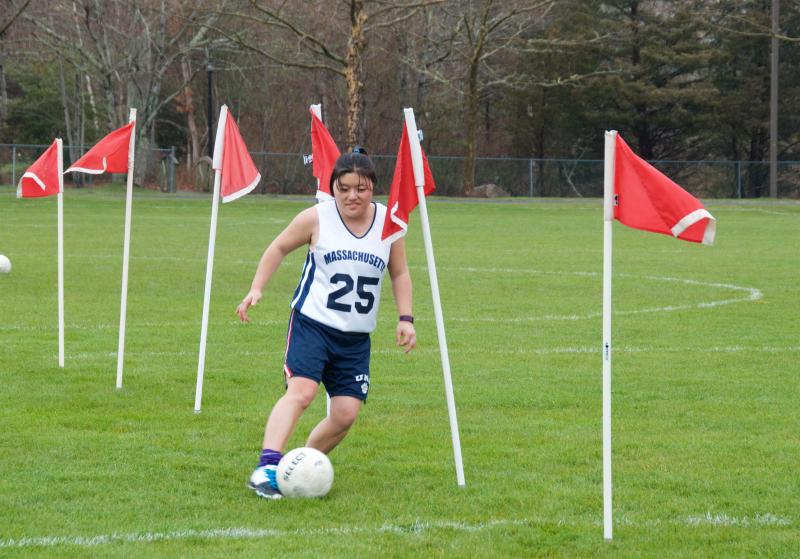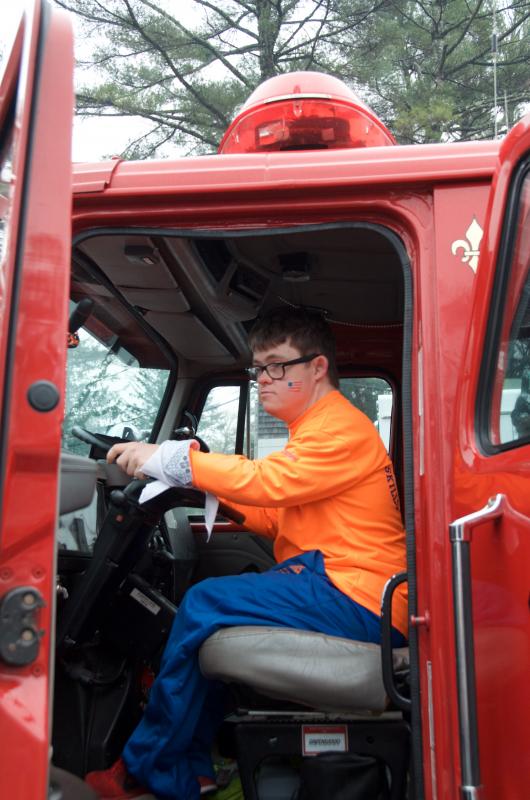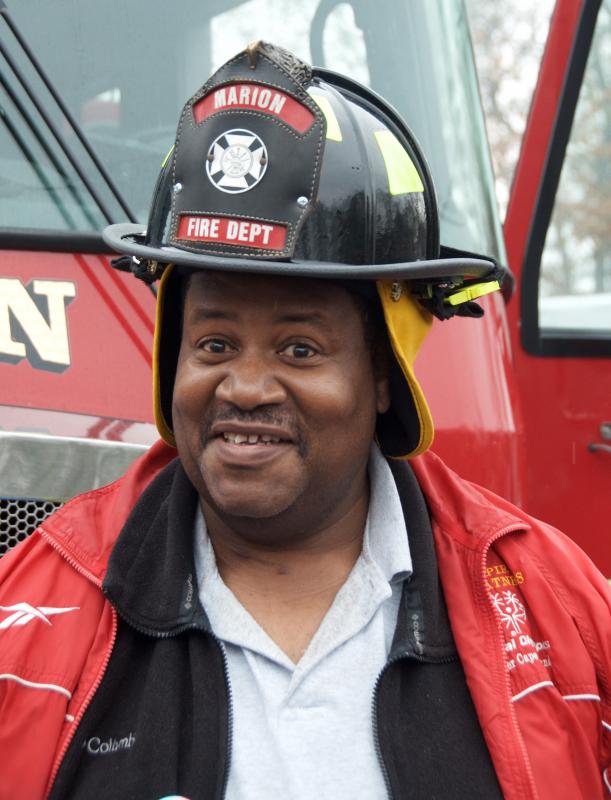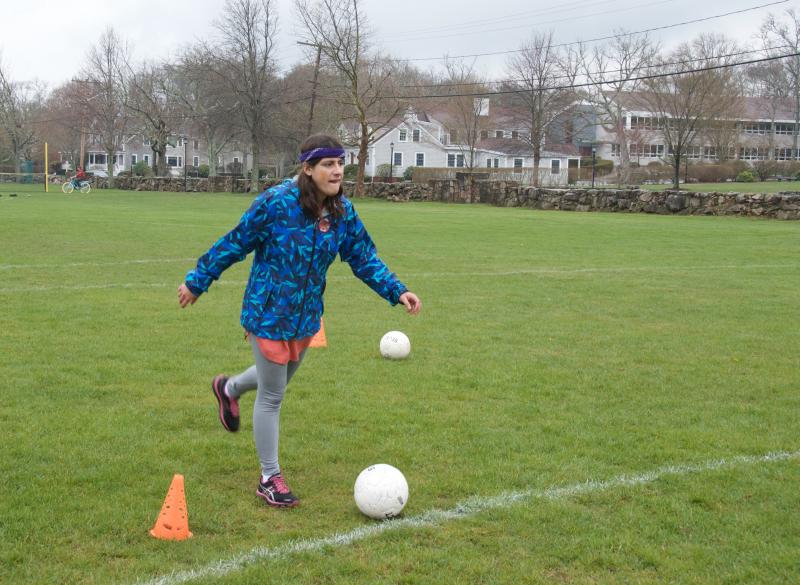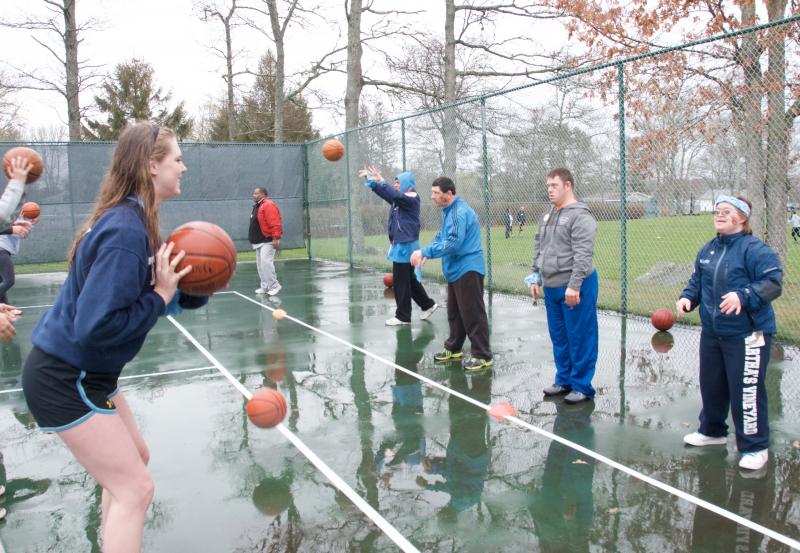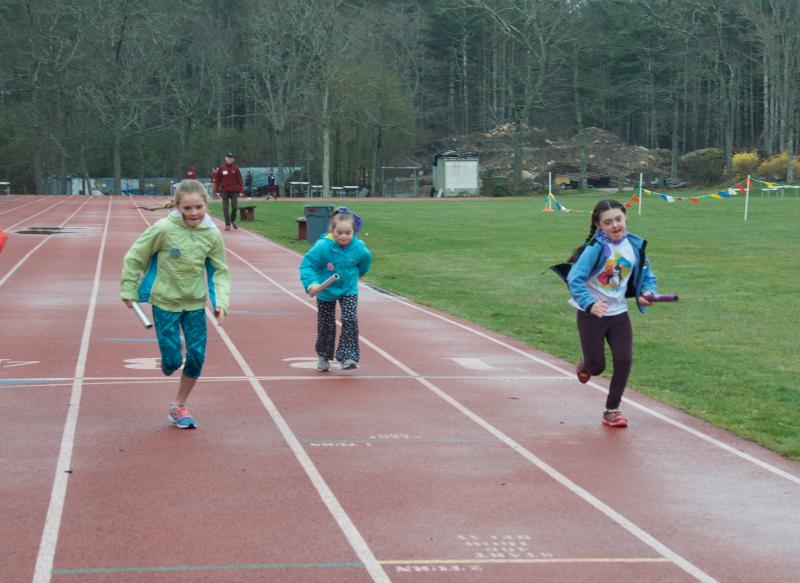Students serve, athletes shine at Special Olympics Fitness Day
The rain didn’t damper the enthusiasm of the Tabor community or its guests as the school held its first Special Olympics Fitness Day on Saturday.
The event drew in more than 80 athletes from age 3 to 45 for a morning of physical activity on Tabor Academy’s campus and in Marion Village.
The Fitness Day comes after the school piloted the Young Athletes Program last winter. Started by student Molly Bent and teacher Tim Cleary, Young Athletes gave kids from 2 years old to 7 an introduction to the Special Olympics with age appropriate activities.
To build on that momentum, Lauren Boucher, director of community services, asked Cleary about turning the school’s annual spring service day into an opportunity for the entire campus to be involved in Special Olympics, which meant organizing 450 students plus faculty and staff.
“They all recognize this is a very important partnership with the school,” said Cleary. “It’s easy to do things like this when you have the backing of everyone from the headmaster to the grounds crew and everyone in between.”
Fitness Day welcomed athletes from Cape Cod, Wareham, New Bedford, Fall River as well as Marion, giving them the opportunity to participate in a “slew of sports,” said Boucher.
Spread across Tabor’s many fields, the events ranged from gymnastics to floor hockey and bocce ball to football with the goal to introduce athletes to new activities.
“It’s something that they try and maybe they pickup a new sport as a chapter or maybe we decide we can host a bocce team at Tabor,” Cleary said. “It’s unique for the diversity of offerings.”
Fall River residents Chris Pineault and his wife brought their two kids, including his son Sam who has special needs. He said they are new to the Special Olympics.
“We’re having a good time,” Pineault said. “Both of my kids are enjoying the day.”
Getting kids and adults with intellectual disabilities together over sports gives them an opportunity to shine.
Ray Shields of Marion brought his 10-year-old daughter Ruby, a two-time gold medal winner in the Special Olympics equestrian competition.
“As she’s getting older now, the spread between her abilities at grade level is getting a lot bigger,” he said. “This is a great event more geared towards her.”
Bent’s younger sister Sarah, an experienced and enthusiastic Special Olympian, was one of the participants also.
When asked what she liked about the day she said, “I like football because I played football.” She added, “[I like] being outside and inside!”
The Massachusetts Special Olympics has never had an event quite like Tabor’s Fitness Day before, according to Cleary, but it fits in with the nonprofit’s new healthy lifestyles initiative. The day included a two-mile fitness walk with a stop at the Fire Station and healthy snacks at Bicentennial Park.
Just like the Young Athletes Program, Saturday’s event was largely student run. From early morning cleanup to the fitness walk and games.
Although there were no formal training sessions for student volunteers, around 100 Tabor kids had already participated in the winter program, and Cleary said this type of activity is already in their wheelhouse.
“It’s us playing games with others. Being cheerleaders, practicing skills, practicing teamwork, practicing sportsmanship. In general, our kids are really good at those things,” he said.
And Boucher said this is something the students are happy to do.
“One of the things the kids have said to us time and again is let’s get as many people on campus as we can,” she said. “They came up with the idea.”
Bent said students have been more excited about Fitness Day than the traditional service day.
“The feeling I’ve gotten is that everyone’s really enjoying it,” said Bent. She added that students who had to leave early for sporting events were disappointed they wouldn’t have more time to interact with the athletes.
Moving ahead, Cleary said a committee of nine students is working on bylaws and a plan to see how the school will continue the momentum of its winter and spring Special Olympic events.
“I would be surprised if our students didn’t continue to do that special work,” he said.



